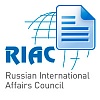Putin’s Visit to the Holy See – No Miracle in Sight
In
Login if you are already registered
(no votes) |
(0 votes) |
Author: Paolo Maggiolini, ISPI Research Fellow
Putin and Pope Francis meet again after their first encounter in November 2013. This very simple fact already highlights the mutual disposition and interest that exists between Russia and the Vatican for sharing positions and fostering dialogue on a number of different issues, embracing both the religious and the political dimensions. In 2013, the Middle East and the condition of its Christian populations were among the most important issues discussed. This will surely be reiterated. At the same time should be added the current situation in Ukraine. Both cases are integral parts of the “piecemeal World War III” as Pope Francis admonished.
Regarding the Middle East and the on-going conflicts in Syria and Iraq that multiply concerns about Christian communities’ futures and inter-religious coexistence in the region, Pope Francis will probably count on the meeting with Putin to again put the spotlight on these issues. Concerning Ukraine, Putin will probably seek to obtain from Pope Francis a new urging to return to a dialogue, working for an inclusive political solution with all the positions involved. At the same time, on the background of the Ukrainian crisis lies one of the most important issues in the relationship between Russia and the Vatican: the ecumenical dialogue between Catholicism and Orthodoxy, and in particular between the Roman Catholic Church and the Russian Orthodox Patriarchate. On this level, both have frequently restated their mutual willingness to continue dialogue and share positions, but this never led to the Russian Patriarchate’s open invitation to the Pope to visit Russia. The situation in Ukraine and the polarisation between the Russian Orthodox and the Greek Catholic Churches seem to create problematic divergences once again. For that reason, this visit will not likely bring a “miracle”, although it could play an important role in a historical period characterized by a dramatic need for dialogue and mutual understanding.
(no votes) |
(0 votes) |




